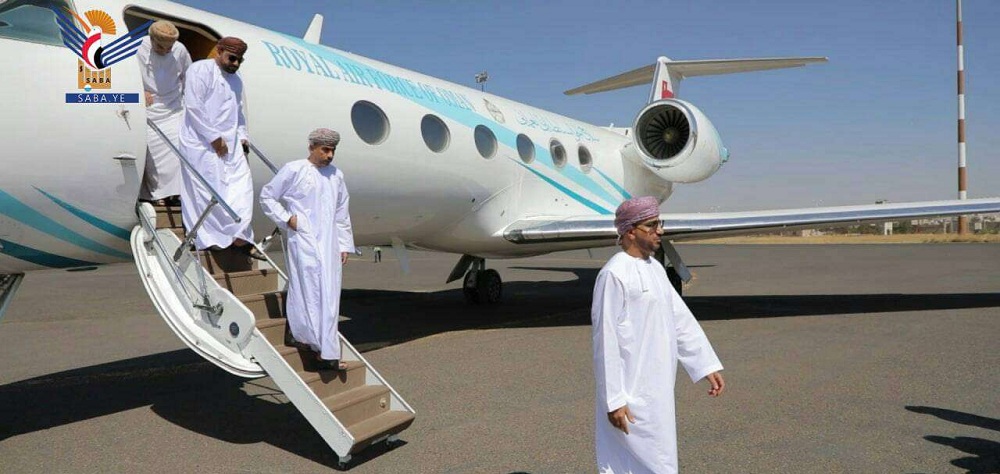Alwaght- After a several-month hiatus in the talks for peace between Saudi Arabia and Yemen with Oman's mediation, with a visit of an Omani delegation to Sana'a, a new round of dialogue both to prevent collapse of the ceasefire and to settle the remaining issues in Yemen crisis has started.
A new round of diplomatic movements in Yemen case is launched by the Omanis as on the one hand the UN special representative to Yemen Hans Grunberg following his recent visit to Riyadh, Sana'a, and Muscat called for restarting the diplomatic efforts to find a political solution to the crisis, and on the other hand, with the visit to Saudi Arabia of Iranian Foreign Minister Hossein Amir-Abdollahian for the first time after 2016 crisis between the two countries, advancing Yemen peace was announced to be one of the top agendas of his discussions in the Arab kingdom.
Though the coincidence of these two events with the Omani delegation seemingly signals a tangible progress in the mediatory attempts of the Omanis, the absence of a Saudi representative from the Omani delegation just contrary to the previous round of negotiations in April suggests that Muscat still has a difficult job working out a peace plan as there is a big obstacle and stalemate goes on, something appearing to reveal differences between Saudi Arabia and Oman about views and ways of advancing the negotiations.
Sana'a conditional welcome to Omani delegation
The arrival of the Omani delegation to Sana'a faced Ansarullah officials’ welcome and expression of support for new round of talks mediated by Oman to show that after several weeks of threats to Arab aggression coalition, Sana'a leaders are still open to political solution.
Muhammad Abdul Salam, the spokesman for Ansarullah and the head of the negotiating team of Sana'a-based National Salvation Government (NSG), welcomed the visit of the Omani delegation and said that the delegation is to evaluate the current stage and resume the negotiation process, the most important part of which is handling of humanitarian cases, including the payment of government employees' salaries.
Referring to reopening airports and sea ports and employees salary payment as the top-priority humanitarian cases, Abdul Salman said that they will discuss revival of dialogue within the framework of a clear outlook that positively influences the humanitarian cases in the most immediate way.
“The airport and ports should be improved and many restrictions should be lifted because the blockade is still in place at all levels,” Abdul Salam said, adding that the US, Britain, Saudi Arabia, and the UAE put the skids under solutions to the crisis.
Ali al-Qahum, a member of Ansarullah's Political Bureau in a tweet said that Sana'a welcomed the arrival of the Omani delegation, sending a message of its good will.
“Among the leading humanitarian cases, we can mention the payment of salaries, the release of prisoners, reopening of airports and ports, complete lifting of the siege, cessation of aggression, withdrawal of foreign forces, reconstruction, and the war compensation to achieve a just peace,” he said, considering progress in these issues as a prelude and precondition for moving towards the next stage, which is achieving a comprehensive political solution and inter-Yemeni dialogue for a transitional period under the will and leadership of the Yemenis, with international support and without foreign interference.
Ansarullah had earlier announced that it reached an agreement with Riyadh for permanent end to war and its implementation depends on Riyadh commitment to its obligations including salary payment and reopening the airports.
Lose-win game; Yemen's take from the ceasefire deal
The new round of regional and international movements to advance peace in Yemen come as in recent weeks concerns about rejuvenated clashes rise following Ansarullah threats against the aggression states.
The newest threat was made by Ansarullah Secretary-General Abdel Malik al-Houthi who said Sana'a is ready to strike Saudi Arabia’s Neom city, a costly and futuristic megaproject set under Saudi 2030 Vision.
Sana'a also announced its intention to develop its naval arsenal and warned that the aggression coalition's bases in the Red Sea and the Indian Ocean are within range of its missiles and drones.
The driving force behind these threats is Ansarullah's take of inequality and unfairness of the benefits of the ceasefire at a time Saudi Arabia is reneging on its commitments. In other words, the truce saved Saudi Arabia from Yemeni strikes, but Riyadh still blocks export of Yemen's oil that is the main source of income of this country. At the same time, power plants experience daily shutdowns due to fuel shortage. Additionally, the ports as Yemen's main lifelines are closed down and the FAO recently reported that only 1 out of 5 Yemeni children who struggle with malnutrition receive necessary aids.
Later in July, Mahdi al-Mashat, the head of Supreme Political Council of Yemen, announced that the talks reached a dead end due to the Saudi insistence on controlling Yemen's oil revenues.
“The talks failed due to disagreements over Saudi Arabia's proposed mechanism for paying civil servants who have not been paid since 2016,” he went on.
Riyadh, al-Mashat said, sought to pay the salaries from its financial resources and transfer Yemen's oil revenues to its central bank. The Saudi insistence comes as salary payment is one of the most important conditions of Ansarullah for ceasefire to hold.
Therefore, while Sana'a finds its interests endangered in a state of no peace, no war and it seems that the Ansarullah considers the latest visit of the Omani delegation as the last chance to the Saudis to solve the problems diplomatically, Riyadh’s insistence on testing the failed paths including economic pressure to wrest privileges from Sana'a at the negotiating table can only deteriorate the circumstances and catalyze a new round of clashes.



























